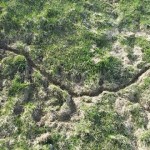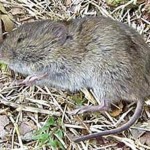
 We’re seeing a lot of voles in Utah this year, especially in Park City and throughout Summit County. While we’re unsure of the cause of the explosion of vole population in the area, we can take care of the problem.
We’re seeing a lot of voles in Utah this year, especially in Park City and throughout Summit County. While we’re unsure of the cause of the explosion of vole population in the area, we can take care of the problem.
Often, our customers don’t realize they have a vole problem. They assume they either have gophers or groundhogs (also called woodchucks), or they think they have mice. When people don’t correctly identify the animal causing damage in their yard or getting into their home, they don’t know the correct ways of getting rid of that wild animal. In order to accurately identify the animal causing problems, experts with Allstate Animal Control looks at the type of damage, animal droppings, and any other tell-tale signs. They then have the correct materials and methods to catch or trap the animals, get rid of them, and can often identify what has attracted the animals to your home or property. Knowing why wild animals come to your house or yard means Allstate Animal Control can help you prevent them from coming back.
A vole looks very similar to a mouse, with a few exceptions. Voles aren’t as sleek as mice, they have a shorter, hairy tail, smaller ears and eyes than a mouse, and a slightly rounded head. They are like mice in that they are prolific breeders. A single vole can have about a hundred babies per year.
Voles are omnivores. While they prefer to munch on small plants, bulbs and roots, they will also eat dead animals. The most obvious vole damage is a network of burrows or tunnels across a lawn with small exit holes that are usually about the size of a nickel or quarter. Unlike gopher holes or mole holes, voles don’t leave a mound of dirt surrounding their exit holes. You may wonder why you have trails of dead grass criss-crossing your yard, or why flower bulbs aren’t blooming, or why small bushes or young trees have been girdled at the base. It’s likely the work of voles.
Voles won’t just stay in the yard, though. They’ll burrow under crawlspaces, sometimes get into the walls of a building, or invade a garage if conditions are right for them.
Like most rodents, if you see a vole or vole damage, you probably have many more that you don’t see. It’s important to be proactive, get rid of the voles as soon as you’re aware of the problem, or the problem will quickly become more serious. Call Allstate Animal Control at 1-888-488-7720 or visit the home page at allstateanimalcontrol.com.